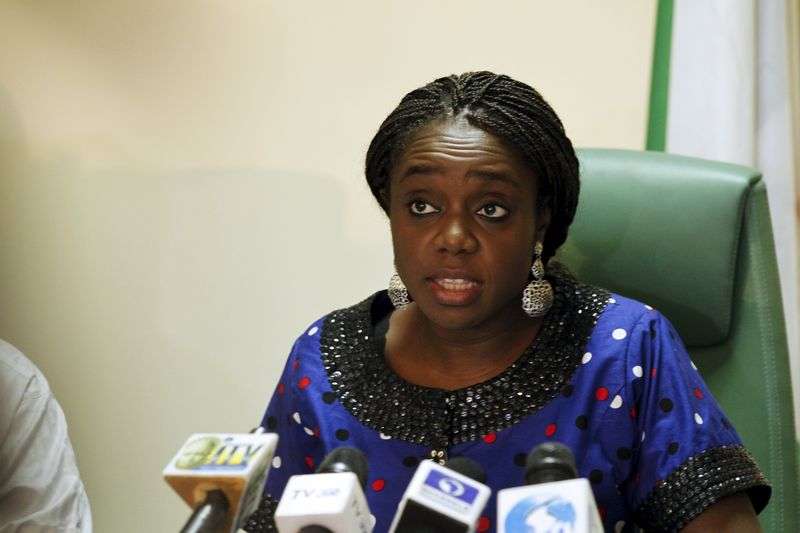- FG Moves Against Agencies Over Financial Abuse
The Federal Government has decided to come down hard on some its revenue-generating agencies accused of engaging in activities that are considered to be abuse of the revenues they generate.
Instead of remitting the revenues to the Federation Account, the agencies were said to be diverting them through several illegal means and ploys.
The Minister of Finance, Mrs. Kemi Adeosun, was said to have briefed a meeting of the National Economic Council presided over by Vice-President Yemi Osinbajo on the development.
Anambra State Governor, Willie Obiano; Bauchi State Governor, Muhammed Abubakar; and the Minister of State for Petroleum Resources, Ibe Kachikwu, briefed State House correspondents at the end of the meeting held inside the Presidential Villa, Abuja.
Obiano said the council was told that the Ministry of Finance and the Revenue Mobilisation Allocation and Fiscal Commission were working together to stop the financial abuse said to have been going on for a decade.
He, however, did not name the agencies involved in the said sharp practices.
Obiano said, “The Minister of Finance detailed to the council certain activities of some revenue-generating agencies that amounted to financial abuse of the revenues they generate, which are meant to have been remitted to the Federation Account, but diverted through several undue and illegal means and ploys.
“The activities include paying salaries above the specifications of the RMAFC; converting official cars to personal ownership under 48 hours of purchase; inappropriate and arbitrary monetisation of medical allowances; undue and excessive overseas travels, lavish training allowances and conference spending; and excessive and personal loan approvals, including unapproved mortgages, among others.”
The governor added, “The Ministry of Finance and the RMFAC are working together to rein in this abuse as these revenue agencies raise as much as N1.5tn yearly and spend almost 90 per cent of it on recurrent expenditure in clear violation of due process and the Constitution.
“The minister added that this financial abuse has been going on for a decade, whereby the agencies hide revenues that ought to go into the Federation Account, but assured the council that such activities will now be exposed and terminated as directed by the President.”
Although Obiano did not mention the names of the affected government agencies, a source who attended the meeting told our correspondent that the agencies were the same as those that were recently indicted for collecting revenues in foreign currencies but remitting to the Federation Account the naira equivalents.
He said, “This revelation is a continuation of the searchlight being beamed on the country’s revenue-generating agencies. You know there was a time some of them were accused of collecting revenues in foreign currencies but remitting to the Federation Account the naira equivalents.
“They are the same set of agencies. They include the Federal Inland Revenue Service, the Nigeria Customs Service and the Nigeria Ports Authority, among others.”
Another source, who also attended the meeting, said Adeosun mentioned federal hospitals and schools as others engaged in the act.
The source, however, said the minister was not specific on the federal hospitals and schools involved.
“The Minister of Finance specifically mentioned hospitals and schools in her presentation,” the source added.
Obiano also said Adeosun put the balance in the Excess Crude Account at the moment at $2.4bn.
On the budget support loan facility, the governor said N1.1bn was disbursed in October to 35 states and that a total of N6.3bn had now been disbursed to each of the 35 states.
He added that governors brought up the alleged N2bn ecological fund said to have been paid to some states by the last administration under unclear circumstances and criteria.
“There were complaints that state governments did not have equal access to the fund amid allegations of political preferences. Vice President Osinbajo assured the council that the matter would be properly investigated, broadly reviewed and that forthright counsel would be made to the President regarding the matter,” Obiano stated.
Abubakar said the council was also briefed on measures being put in place to energise Micro, Small and Medium-scale Enterprises to drive economic growth.




 Naira4 weeks ago
Naira4 weeks ago


 Naira3 weeks ago
Naira3 weeks ago


 News4 weeks ago
News4 weeks ago
 Travel4 weeks ago
Travel4 weeks ago




 Naira4 weeks ago
Naira4 weeks ago
 Naira3 weeks ago
Naira3 weeks ago


 Jobs3 weeks ago
Jobs3 weeks ago


 Travel3 weeks ago
Travel3 weeks ago



















